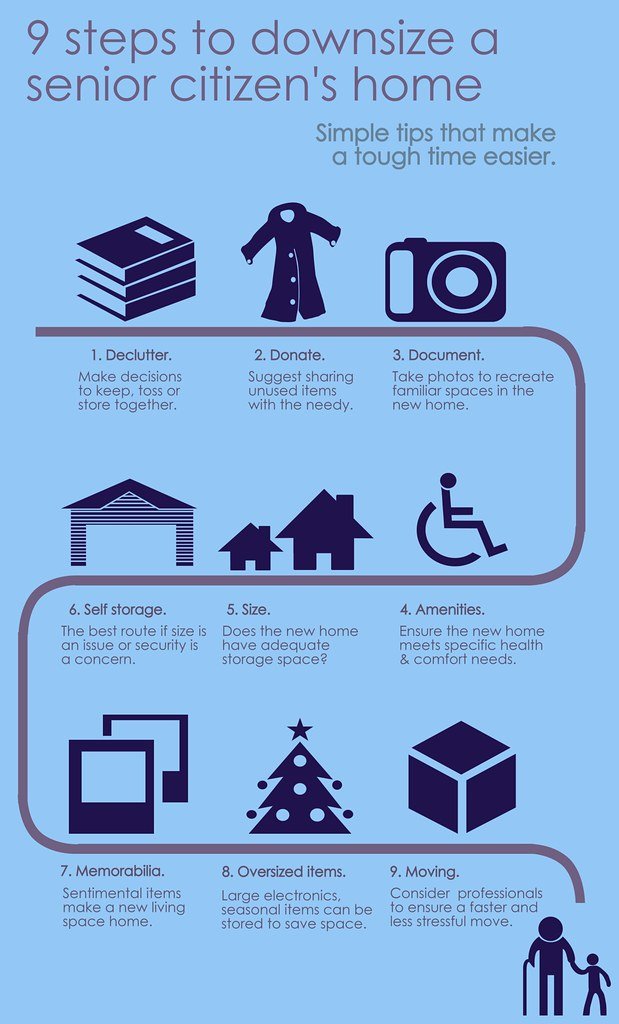Now Reading: How to Choose the Right Alarm System for Your Home
-
01
How to Choose the Right Alarm System for Your Home

How to Choose the Right Alarm System for Your Home
Home is more than just a place; it’s our sanctuary, our refuge from the chaos of the outside world. It’s where the memories of a lifetime are made and where our loved ones feel safe. But in an ever-evolving society, protection for our homes has become a paramount concern. With crime rates soaring and trespassers lurking in the shadows, it’s time to take charge of our security, reassuring ourselves and our families. Choosing the right alarm system for your home can be a bewildering task, buried under a plethora of options and jargon. However, fear not, for in this article, we will guide you through the intricate maze of choices, unraveling the secrets behind finding the perfect alarm system that will ensure your peace of mind around the clock. So let’s dive into the world of home security and discover how to safeguard our abode like never before.
Table of Contents
- Finding the Perfect Alarm System to Safeguard Your Home
- Understanding Your Home Security Needs: A Comprehensive Guide
- Exploring the Different Types of Alarm Systems for Enhanced Protection
- Key Factors to Consider While Selecting an Alarm System for Your Home
- Expert Recommendations: Top Alarm Systems on the Market
- Q&A
- The Way Forward

Finding the Perfect Alarm System to Safeguard Your Home
Factors to consider when choosing the ideal alarm system for your home:
- Home size: Assess the square footage of your property to determine the appropriate coverage capacity needed for an alarm system to effectively safeguard your home. Larger homes may require multiple sensors or cameras to ensure comprehensive protection.
- Security needs: Every home has unique security requirements, so it’s crucial to consider the level of protection you desire. Do you prefer a basic system that covers the main entry points, or do you require comprehensive surveillance with motion detectors, glass break sensors, and security cameras?
- Connectivity: Explore the connectivity options available for your alarm system. Some systems offer traditional landline connections, while others operate through cellular networks or Wi-Fi. Consider what type of connection is more reliable and convenient for your household.
- Monitoring services: Decide whether you want to opt for professional monitoring services or self-monitor your alarm system. Professional services can provide 24/7 surveillance and immediate response to emergencies, while self-monitoring allows you to oversee your system using smartphone apps or computers.
- Budget: Determine your budget range for an alarm system. Consider the upfront costs for equipment installation and any ongoing subscription fees for monitoring services. It’s important to strike a balance between your desired level of security and what you can comfortably afford.
- User-friendly interface: Look for alarm systems with user-friendly interfaces that are easy to operate and customize. Consider systems with intuitive control panels or smartphone apps that allow you to manage and monitor your security settings effortlessly.
By carefully considering these factors, you can choose an alarm system that suits your specific needs and provides comprehensive protection for your home and loved ones.

Understanding Your Home Security Needs: A Comprehensive Guide
Your home should be your sanctuary, a place where you feel safe and secure. Ensuring the safety of your loved ones and belongings is of utmost importance. But with the myriad of options available in the market, understanding your home security needs can sometimes be daunting.
When it comes to home security, one size does not fit all. Each home has unique requirements based on factors such as location, layout, and personal preferences. By taking the time to assess your specific needs, you can make informed decisions to create a comprehensive security plan that suits your lifestyle.
The key factors to consider when understanding your home security needs:
- Location: Evaluate the safety of your neighborhood. Is it prone to crime? Are there any specific vulnerabilities in your area that need attention?
- Property Analysis: Conduct a thorough assessment of your property. Identify potential entry points and weak spots, such as dark corners or outdated locks.
- Family Dynamics: Consider the size of your household, ages of family members, and any specific security concerns like children, elderly, or pets.
- Valuables: Take stock of your valuable possessions and determine what measures you need to take to protect them.
- Lifestyle: Your daily routine and lifestyle play a crucial role in determining the level of security you require. Do you frequently travel or work long hours? These factors may influence the type of security system you choose.
By understanding these key factors, you’ll be well on your way to developing a comprehensive home security plan that meets your specific requirements. Whether it’s installing robust locks, setting up surveillance cameras, or opting for a professional monitoring service, tailoring your approach to your unique needs will provide the peace of mind you deserve.
Exploring the Different Types of Alarm Systems for Enhanced Protection
When it comes to protecting our homes or businesses, having a reliable alarm system is crucial. With advances in technology, there are now various types of alarm systems available that cater to different needs and preferences. Let’s take a closer look at some of these options:
- 1. Burglar Alarms: These alarms are designed to detect unauthorized entry into a building. They use sensors such as motion detectors, door/window sensors, and glass break detectors to alert homeowners or business owners of potential break-ins.
- 2. Fire Alarms: As the name suggests, fire alarm systems are essential for early fire detection. They consist of smoke detectors, heat detectors, and sprinklers that activate upon detecting a fire. They can save lives and minimize property damage.
- 3. Carbon Monoxide Alarms: Carbon monoxide is a colorless, odorless gas that can be lethal if not detected early. Carbon monoxide alarms are designed to safeguard occupants of a building by sounding an alarm when levels of the gas reach dangerous levels.
Choosing the right alarm system for your specific needs is crucial in ensuring the safety and security of your property. Whether you opt for a combination of different alarm systems or focus on a single type, having these preventive measures in place provides peace of mind and enhanced protection. Don’t compromise on your safety; invest in a reliable alarm system today!
Key Factors to Consider While Selecting an Alarm System for Your Home
When it comes to the safety and security of your home, choosing the right alarm system is of utmost importance. With the wide range of options available in the market, it can be overwhelming to make the right choice. However, by considering a few key factors, you can ensure that you select an alarm system that fits your needs perfectly.
1. Coverage: The first factor to consider is the coverage area of the alarm system. Determine the size of your home and identify the areas that require protection. Some alarm systems cover only a limited range while others can secure multiple zones simultaneously, ensuring comprehensive protection for your entire property.
2. Detection Technology: Another critical factor to consider is the detection technology used in the alarm system. Look for systems that utilize advanced sensors such as motion detectors, door/window contacts, and glass break detectors. These technologies ensure that any potential intrusions are detected promptly, providing an effective line of defense.
3. Monitoring Services: Consider the type of monitoring services offered by the alarm system provider. Do they provide 24/7 professional monitoring? Is the monitoring station reliable and responsive? Opting for a system with professional monitoring ensures that any alarms triggered will be immediately addressed, giving you peace of mind, even when you’re away from home.
Expert Recommendations: Top Alarm Systems on the Market
When it comes to protecting your home, finding the right alarm system is essential. Our team of experts has carefully evaluated various alarm systems available on the market, taking into consideration factors such as reliability, features, and customer feedback. After extensive research, we present to you our top recommendations:
1. ShieldGuard Pro
The ShieldGuard Pro is a state-of-the-art alarm system designed to provide comprehensive security for your home. With its advanced motion sensors and 24/7 professional monitoring, you can trust that this system will keep you and your loved ones safe. Additionally, the ShieldGuard Pro offers convenient features such as remote access via a mobile app and compatibility with smart home devices, making it an excellent choice for those seeking both security and convenience.
2. SecureWatch Plus
SecureWatch Plus is another top-notch alarm system that boasts an impressive array of features. This system includes wireless sensors, enabling hassle-free installation, and can be easily expanded to fit the needs of your home. The SecureWatch Plus also offers customizable alerts and notifications, ensuring you stay informed at all times. Whether you’re at home or away, you can rely on this system to safeguard your property effectively.
3. Guardian Force 5000
The Guardian Force 5000 is a robust alarm system known for its reliable performance. Equipped with advanced burglar detection technology and a 24-hour backup battery, it guarantees uninterrupted protection even in power outages. The Guardian Force 5000 also provides easy integration with third-party home automation systems, giving you the flexibility to create a fully interconnected security setup tailored to your needs.
No matter which alarm system you choose from our expert recommendations, rest assured that your home and loved ones will be well-protected. Remember to carefully assess your specific requirements and budget before making the final selection. Don’t compromise on security when it comes to your peace of mind!
Q&A
What factors should I consider when choosing an alarm system for my home?
You should consider factors such as the size and layout of your home, your budget, and the level of security you desire. It’s important to assess your specific needs and find a system that offers the right features and functionality for your unique situation.
Do I need a wired or wireless alarm system?
This depends on your preferences and the structure of your home. Wireless alarm systems are usually easier to install and can be more flexible, while wired systems are typically more reliable and have a longer lifespan. Consider your home’s layout and your requirements to make an informed decision.
What are the essential features to look for in an alarm system?
Key features to consider include motion sensors, door/window sensors, an alarm control panel, and a 24/7 monitoring service. These features will ensure comprehensive protection for your home and provide you with peace of mind.
Should I opt for a monitored alarm system or a self-monitored one?
Monitored alarm systems offer professional monitoring services that can alert authorities in case of a breach, providing an extra layer of security. Self-monitored systems require you to monitor and respond to alerts personally. Choose the option that aligns with your security needs and budget.
Are there any additional components I should consider?
Additional components such as surveillance cameras, smart home integration, and home automation capabilities can enhance the security of your home. Assess your requirements and budget to decide if these additional features are necessary for your situation.
How do I choose a reputable alarm system provider?
Research and read reviews to find a reputable provider with a strong track record of customer satisfaction. Look for certifications and accreditations, and consider their customer service reputation. It’s also a good idea to get quotes from multiple providers to compare pricing and features.
What is the average cost of a home alarm system?
The cost of an alarm system can vary depending on factors such as the size of your home, the features included, and the provider you choose. On average, you can expect to pay between $200 and $800 for the equipment and installation, with monthly monitoring fees averaging around $30 to $50.
Can I install an alarm system myself?
Yes, many alarm systems are designed for DIY installation. However, if you are not comfortable with technology or prefer professional installation, you can opt for a system that offers installation services.
The Way Forward
In the race against time, the right alarm system can be your home’s trusted guardian, keeping dangers at bay while preserving your peace of mind. As we conclude this insightful journey through the realm of security, the power to choose lies firmly in your hands. By blending modern technology with your unique needs, you can embark on a mesmerizing quest to find the ultimate alarm system. Remember, dear reader, the right alarm system is not just a mere accessory, but a guardian angel that embraces your family’s safety. So, traverse the labyrinth of options, allow your intuition to guide you, and let the symphony of reliability and innovation bring harmony to your humble abode. As you venture forth and select the perfect alarm system for your sanctuary, may the path you tread be illuminated, fortified, and filled with tranquil nights. Safe and sound, your castle shall stand proud, supported by this fortress of vigilance. For your home deserves nothing less than the finest armor, protecting all that you hold dear.
As an affiliate, my content may feature links to products I personally use and recommend. By taking action, like subscribing or making a purchase, you’ll be supporting my work and fueling my taco cravings at the same time. Win-win, right?
Want to read more? Check out our Affiliate Disclosure page.





